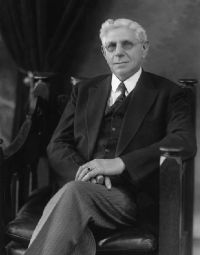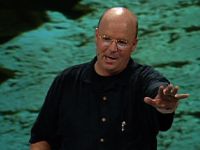 I’ve been reading through John Calvin’s magnum opus on the Christian faith lately, a piece of writing (whether people realize it or not nowadays) that has been one the biggest influences on the theological thinking of the evangelical Protestant church. I just wanted to share some choice quotes I have found recently and thought they might be encouraging to you.
I’ve been reading through John Calvin’s magnum opus on the Christian faith lately, a piece of writing (whether people realize it or not nowadays) that has been one the biggest influences on the theological thinking of the evangelical Protestant church. I just wanted to share some choice quotes I have found recently and thought they might be encouraging to you.
“Whoever then heeds such teachers as hold us back with thought only of our good traits will not advance in self-knowledge, but will be plunged into the worst ignorance.”
“Here then is what God requires us to seek in examining ourselves: it requires the kind of knowledge that will strip us of all confidence in our own ability, deprive us of all occasion for boasting, and lead us to submission.”
“Nothing pleases man more than the sort of alluring talk that tickles the pride that itches in his very marrow. Therefore in nearly every age when anyone publicly extolled human nature in most favorable terms, he was listened to with applause.”
“… But it does nothing but delight in its own sweetness; indeed, it so deceives as to drive those who assent to it into utter ruin.”
– John Calvin, Book 2, Chapter 1 of the Institutes, pgs. 242-43
“If there is no good in us, if man is wholly sin from head to foot, if he is not even allowed to test how far the power of the will can be effective – how could anyone possibly parcel out the credit for good works between God and man?”
“Whoever is utterly cast down and overwhelmed by the awareness of his calamity, poverty, nakedness, and disgrace has thus advanced farthest in knowledge of himself.”
“If it is the devil’s word that exalts man in himself, let us give no place to it unless we want to take advice from our enemy.”
“We should not rely on any opinion of our own strength, however small it is, if we want God to be favorable toward us, Who ‘opposes the proud but gives grace to the meek.’ [James 4:6 and 1 Peter 5:5]”
“These [passages] testify that no one is permitted to receive God’s blessings unless he is consumed with the aware of his own poverty [before Him].” (My insertions for clarification)
– John Calvin, Book 2, Chapter 2 of the Institutes, pgs. 267-68
If you want to get this, the best version is the one edited by John T. McNeill which you can buy here: http://www.monergismbooks.com/Institute … 16211.html . An amazing gift to the church!

 This past week, I’ve been reading through Hosea. The language God uses to speak of Israel is quite striking. “For a spirit of whoredom has led them astray, and they have left their God to play the whore” (Hosea 4:12). The Lord, over and over in this book, describes His relationship with Israel as that of being married to a whore. And not just a one time affair or adulterous short-term fling. It is serial adultery He speaks of, a pursuit after whoredom. That is strong language to describe Israel’s unfaithfulness.
This past week, I’ve been reading through Hosea. The language God uses to speak of Israel is quite striking. “For a spirit of whoredom has led them astray, and they have left their God to play the whore” (Hosea 4:12). The Lord, over and over in this book, describes His relationship with Israel as that of being married to a whore. And not just a one time affair or adulterous short-term fling. It is serial adultery He speaks of, a pursuit after whoredom. That is strong language to describe Israel’s unfaithfulness. While many are well-intentioned in saying, “I hate religion, but I love Jesus,” or, “It’s not about a religion but a relationship [with God],” it seems the word ‘religion’ itself has come under intense fire as a source of all kinds of evil, particularly amongst the evangelical landscape. There is some validity to this assumption looking back upon our history as fallen sinners (or even the present day), where in the name of religion, many horrible things have been done to others. And in the last 50 years there is more weight given to this view that the concept of religion is a bad thing based upon the kinds of Christian groups who picket absolutely everything the world does they don’t like, or which threaten their reign on things of this world.
While many are well-intentioned in saying, “I hate religion, but I love Jesus,” or, “It’s not about a religion but a relationship [with God],” it seems the word ‘religion’ itself has come under intense fire as a source of all kinds of evil, particularly amongst the evangelical landscape. There is some validity to this assumption looking back upon our history as fallen sinners (or even the present day), where in the name of religion, many horrible things have been done to others. And in the last 50 years there is more weight given to this view that the concept of religion is a bad thing based upon the kinds of Christian groups who picket absolutely everything the world does they don’t like, or which threaten their reign on things of this world. Today, Scot McKnight
Today, Scot McKnight  I’ve been reading through John Calvin’s magnum opus on the Christian faith lately, a piece of writing (whether people realize it or not nowadays) that has been one the biggest influences on the theological thinking of the evangelical Protestant church. I just wanted to share some choice quotes I have found recently and thought they might be encouraging to you.
I’ve been reading through John Calvin’s magnum opus on the Christian faith lately, a piece of writing (whether people realize it or not nowadays) that has been one the biggest influences on the theological thinking of the evangelical Protestant church. I just wanted to share some choice quotes I have found recently and thought they might be encouraging to you.